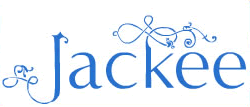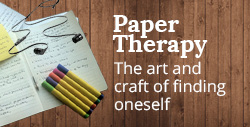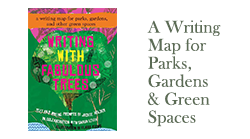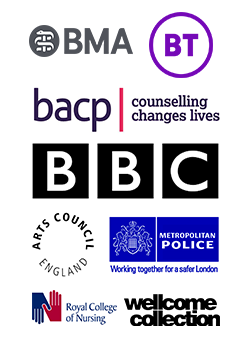To Write Or Not To Write? That Is The Question!
On a recent coaching supervision course the course facilitator Miriam Orriss made the following comment, “What you observes changes.”
When we make time and space in our schedule to write and reflect on our coaching and supervision we can both in subtle and significant ways improve our practice and become better coaches as well as human beings. The reasons for these are varied.
Using writing to reflect on our work as coaches means that we are raising the standards of our profession by examining what we do, how we do it and the impact of what we do.
Creative writing as part of a regular writing practice can develop and cultivate the resourcefulness of the inner coach as well as becoming a form of self-supervision.
Writing literally has the power to impact our thought processes and behaviours at molecular and cellular levels as well as help to change previous neural pathways.
Writing creatively and therapeutically can move you into spaces where you activate and connect with the innate and often underused wisdom of the inner coach and the inner supervisor.
Writing is a way to challenge how we think. Very often when we write we are not aware consciously of what writing will reveal to us. Writing can help individuals cultivate new perspectives that inform the way you do things both on and off the page and within the context of our coaching and supervision.
There are different approaches to use creative and therapeutic writing in your work as a coach and a coach supervisor:
- Writing up your notes after a coaching or supervision session is an excellent form of best practice for our industry.
- Writing a dialogue in the voice of an observer and reflecting back on your sessions is another.
- Using the dialogue method to have conversations with your clients and supervisee’s on the page can be a way to explore both conscious and unconscious dynamics in your coaching and supervision relationships.
- Get creative and introduce creative writing activities into your coaching and supervision sessions. Use writing prompts (words or sentences which clients can use to free write or free associate with) and also write about dilemmas and issues, which often allows the real issue to surface on the page.
I own a small, portable writing kit that I travel with to coaching and supervision sessions away from home. The kit consists of a small plastic wallet containing coloured pens, blank index cards and a collection of writing prompts.
Writing prompts are small slips of paper or card each transcribed with a single word or sentence and sometimes images, which clients can use to bring their attention and focus to the present moment.
Invite your clients to randomly select a prompt form your collection and write for five minutes. They’re free to record any thoughts or associations that is stimulated from the writing prompt. Equally they’re free to write about whatever comes to mind whether it’s directly about the word/sentence or whether it’s about something current that is on their mind.
Using this method at the start of a coaching or supervision session can be a way of clients becoming more mindful and can help clients access an entry point that allows them to quickly to sink below the surface of their often busy lives and make connections with what is really important and meaningful thereby making better use of the coaching and supervision space.
This year as a result of completing a brilliant on line class entitled Journal For Your Life with Susannah Conway http://www.susannahconway.com/e-courses/journal-your-life/ I filled two business journals (which was one of the activities in the on line class), which are notebooks separate from a personal journal where you gather creative ideas and goals about your business and plans for developing it.
What’s great about keeping a business diary in this way is that I have a completely different relationship with it. Why? Because I only write in bright, luminous colours (black, blue and red ink are banned from their pages) so every page feels like play and I find it much easier and stimulating to implement many of the ideas I have seeded on their pages. This way work and running my own business has a much stronger element of fun and enjoyment that I have had for a long time. Why not give it a try?
In my final post on this blog for 2013 I want to leave you with a gift, which I hope will inspire you to write even more and enjoy the benefits of writing in 2014.
I’ve written a simple guide on how to start and keep a journal that includes over 40 blank pages for your journal notes, pages for writing your to do lists and lists for just about anything, along with designated pages for jotting down notes and queries as you go about your daily business. There’s also over 40 inspirational writing quotes that will help you to stay motivated both on and off the page.
It’s all free and there’s no sign up. Just click the link and download your free copy of The Journal Journey Guidebook 2014 here:
If you have clients and colleagues who you’d like to share the resource with please feel free to share the link.
Wishing you all the best for the new year and look forward to serving you with more tips and insights on coaching, writing and creativity on the blog in 2014.







Leave a Reply
By submitting a comment here you grant Jackee Holder a perpetual license to reproduce your words and name/web site in attribution. Inappropriate or irrelevant comments will be removed at an admin's discretion.